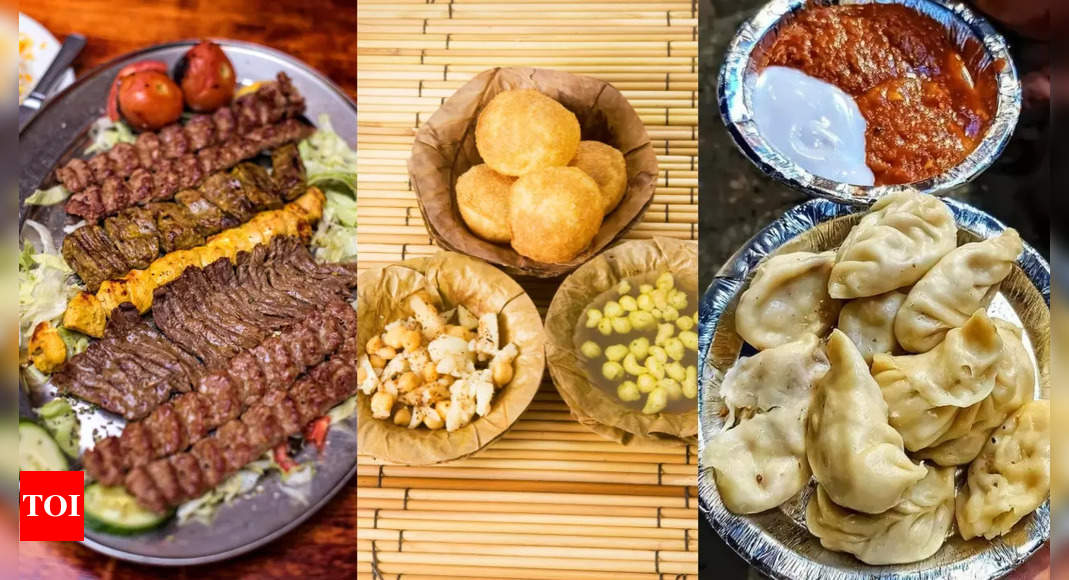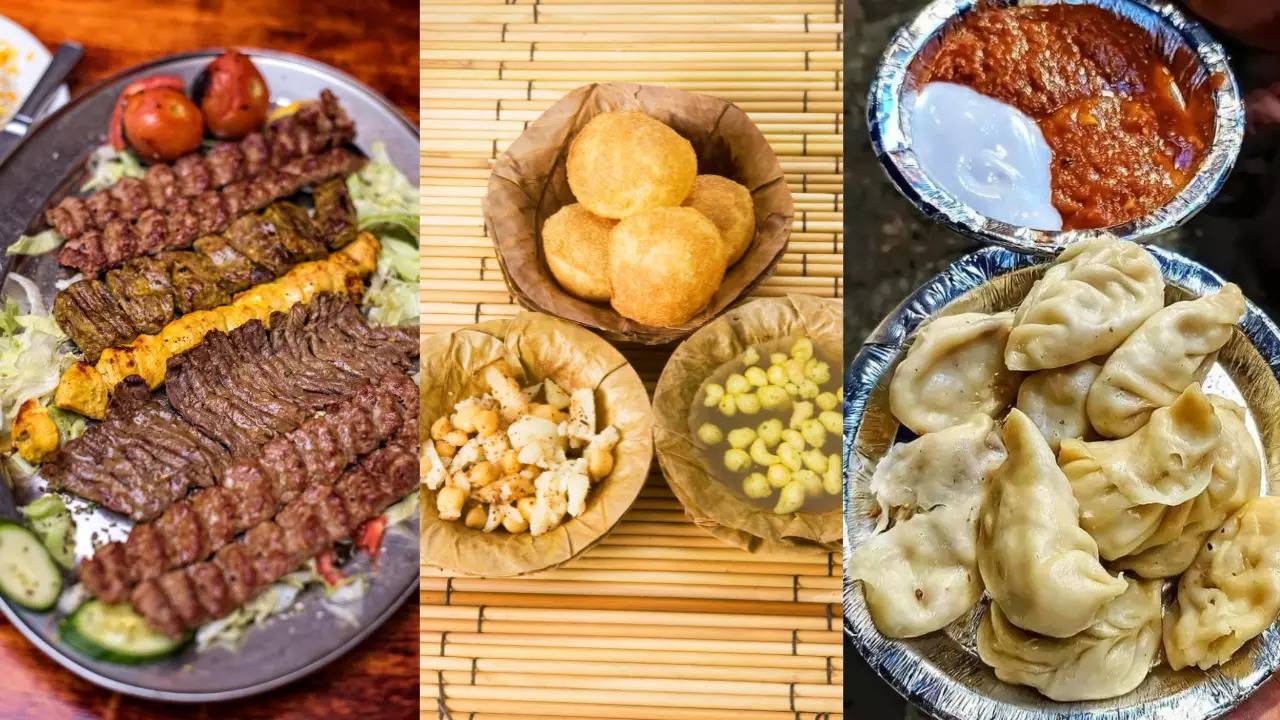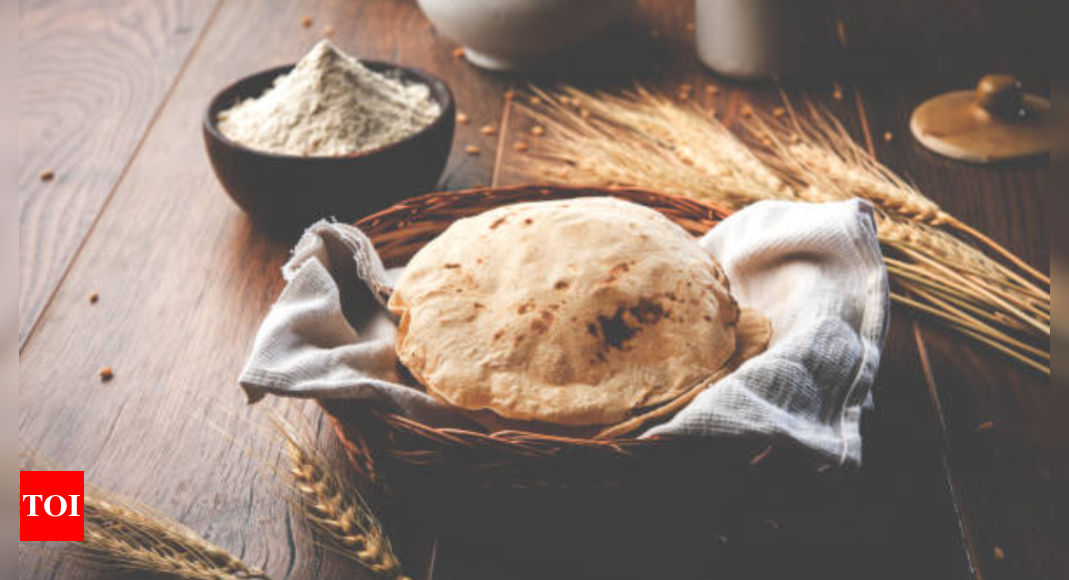Shawarma
The recent fatality linked to Shawarma consumption serves as a stark reminder of the risks associated with this popular street food. While Shawarma may appear innocuous, improper handling, storage, or cooking practices can lead to bacterial contamination, resulting in foodborne illnesses like salmonella or E. coli infections. Consumers should exercise vigilance and ensure that Shawarma is prepared hygienically and with fresh ingredients to mitigate these risks.
Golgappa/Pani Puri
Golgappa, also known as Pani Puri, is a beloved street food across India, celebrated for its burst of flavours and textures. However, the water used to fill these crispy, hollow puris can be a breeding ground for harmful bacteria if not adequately purified or stored. Contaminated water can lead to gastrointestinal infections, posing significant health risks such as dysentery, jaundice and typhoid, particularly during the hot summer months.
Grilled Corn
Grilled corn on the cob is a ubiquitous street food enjoyed by many, especially during summer festivals and fairs. While seemingly harmless, improperly handled or cooked corn can harbour mould or toxins, posing health hazards. Additionally, contamination from unclean cooking surfaces or unwashed hands can introduce harmful pathogens, leading to food poisoning or illnesses like gastrointestinal infections.
Cut Fruits
Freshly cut fruits offered by street vendors may seem like a healthy snacking option, but they can conceal hidden dangers if not handled hygienically. Exposed to unclean equipment, improper washing, or unsanitary handling practices, cut fruits can become contaminated with pathogens, including norovirus or hepatitis A, causing severe gastrointestinal issues or viral infections.
Samosas and Pakoras
These two most popular snacks that we love to eat with a cup of hot tea or coffee, are beloved for their crispy exteriors and flavourful fillings. However, the deep-frying process used to cook these snacks can lead to the formation of harmful compounds like acrylamide, especially when oils are reused multiple times. Consuming these foods in excess may increase the risk of developing health conditions like cancer or cardiovascular diseases.
Spring Rolls
This is a popular appetizer enjoyed worldwide, which has been linked to cases of food poisoning due to improper handling and storage. Contamination from unclean ingredients, cross-contamination during preparation, or inadequate cooking temperatures can introduce harmful bacteria like Salmonella or E. coli. Consumers should exercise caution and patronize reputable establishments to minimise the risk of foodborne illnesses.
Momos
Improper handling, unhygienic conditions, and undercooked fillings are some of the common culprits for food poisoning caused by momos. Bacteria like Salmonella or E. coli may thrive in poorly prepared momos, leading to gastrointestinal issues like nausea, vomiting, and diarrhoea. Additionally, excessive consumption of momos high in unhealthy fats can exacerbate digestive problems. To mitigate these risks, consumers should opt for momos from reputable vendors, ensure they are thoroughly cooked, and practice good food hygiene habits.
Bhel Puri
In India, this is one of the cheapest snacks that’s prepared using puffed rice, vegetables, tangy chutneys, and crunchy toppings. Contaminated ingredients, such as improperly washed vegetables or contaminated water in the chutneys, can harbour harmful bacteria like E. coli or Salmonella. Additionally, the exposure of the dish to unhygienic conditions during preparation and storage further increases the risk of illness such as diarrhoea, stomach cramps, and vomiting.
Kebabs
When it comes to meat-based street foods, kebabs are one of the most popular dishes, especially those made from ground meats like chicken or lamb. Improper cooking temperatures or cross-contamination during the preparation of kebabs can lead to the growth of harmful bacteria like Salmonella or E. coli, which can cause severe illness or even be fatal in some cases.
(Thumb Image courtesy: Canva)










